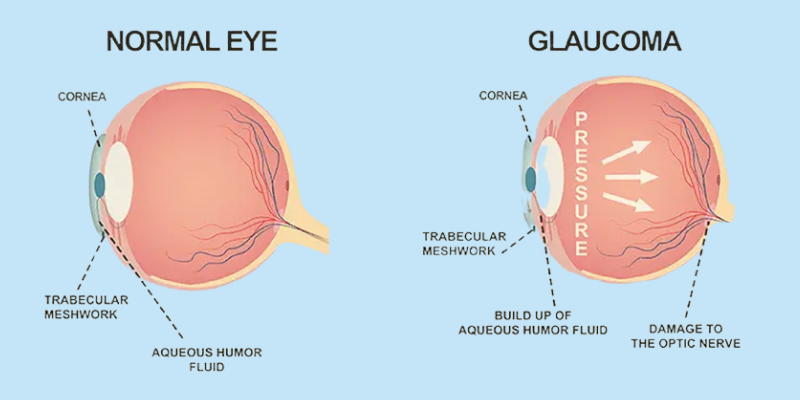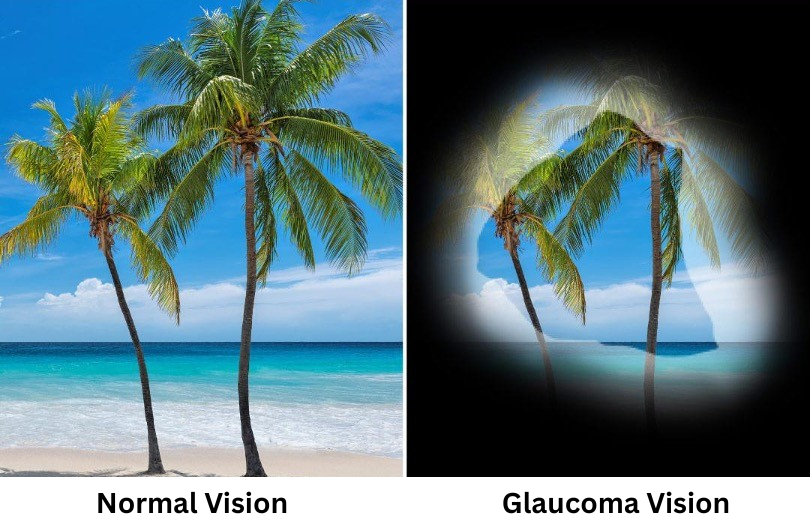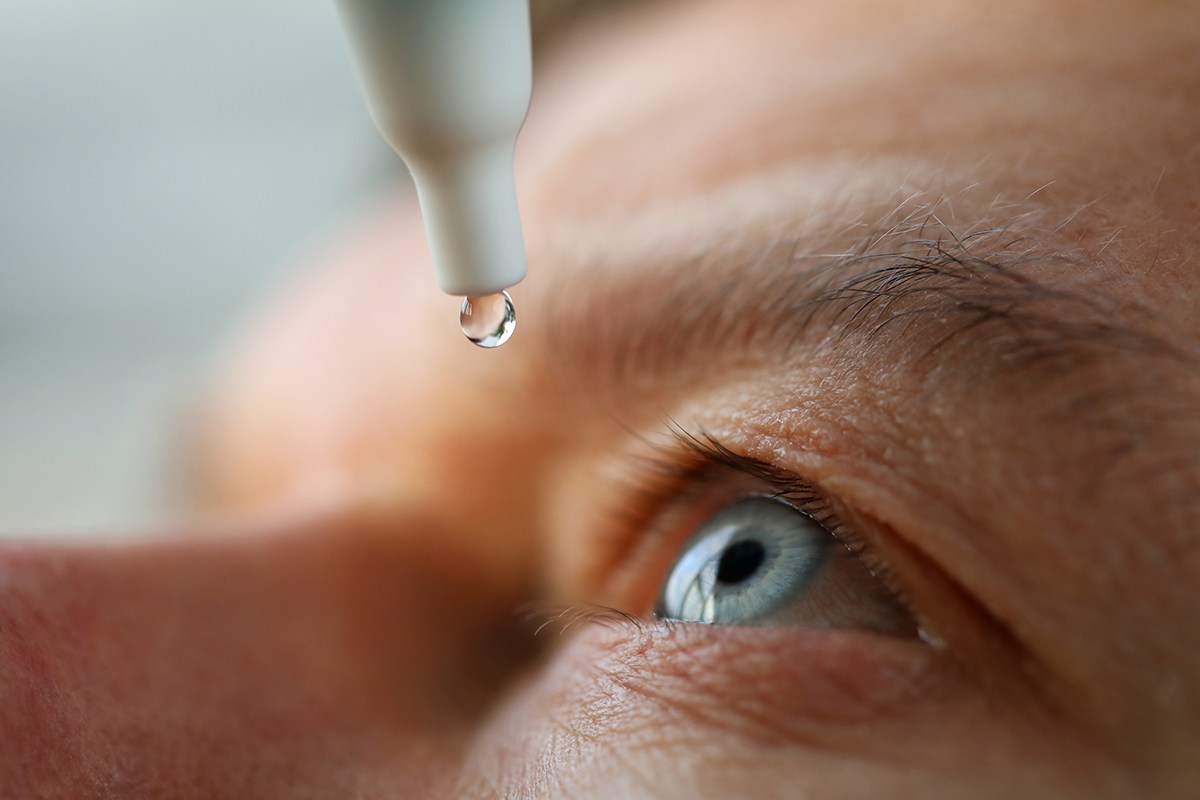Glaucoma: Symptoms, Treatment, and Living Well with Sight Loss
.png)
Glaucoma is one of the leading causes of preventable sight loss in the UK. It affects the optic nerve — the crucial link between your eyes and brain — and often develops without symptoms in its early stages. If left untreated, it can cause permanent vision loss.
The good news? With early diagnosis and proper treatment, many people with glaucoma continue to live full, independent lives. In this guide, we’ll cover:
- What glaucoma is and how it develops
- The most common symptoms to look out for
- Types of glaucoma
- Risk factors you should know
- Treatment options available in the UK
- Everyday tips for living well with glaucoma
- Community support, including how you can volunteer to support visually impaired people
What is Glaucoma?

Glaucoma is the name for a group of eye conditions where the optic nerve is damaged, often because of increased pressure inside the eye (known as intraocular pressure). Over time, this pressure can damage nerve fibres, leading to tunnel vision and eventually central vision loss.
Unlike many eye problems, glaucoma is often symptomless at first. That’s why regular eye tests are so important — they can detect signs of glaucoma before it affects your vision.
You can find out more about How is glaucoma diagnosed?
Symptoms of Glaucoma

Many people do not notice symptoms until glaucoma has already caused damage. However, there are key warning signs depending on the type:
- Chronic glaucoma (primary open-angle glaucoma): develops slowly and painlessly. The first symptom is usually the loss of peripheral (side) vision.
- Acute glaucoma (angle-closure glaucoma): develops suddenly and is a medical emergency. Symptoms may include:
- Severe eye pain
- Redness and tenderness around the eyes
- Blurred vision or “misty” sight
- Seeing rainbow-coloured circles around lights
- Headache, nausea, or vomiting
- Severe eye pain
If you suddenly develop these symptoms, call 999 or go to A&E immediately.
Types of Glaucoma
There are several forms of glaucoma, including:
- Primary open-angle glaucoma (POAG): the most common type in the UK, which develops slowly over time.
- Angle-closure glaucoma: sudden blockage of eye fluid drainage, requiring urgent treatment.
- Secondary glaucoma: caused by another eye condition, such as injury or uveitis.
- Childhood glaucoma: rare but serious, appearing in babies and young children.
Learn more about different types of glaucoma.
Who is at Risk?
Anyone can develop glaucoma, but certain factors increase your risk:
- Age: Most common in people over 40.
- Family history: If a parent, sibling, or child has glaucoma, your risk is higher.
- Ethnicity: More common in people of African-Caribbean and Asian heritage.
- Other health conditions: Diabetes, high blood pressure, and short- or long-sightedness.
- Steroid use: Long-term use of steroid-based medications can raise risk.
In the UK, if you have a close relative with glaucoma, you are entitled to free NHS eye tests.
Treatment for Glaucoma

While there is no cure for glaucoma, treatments can stop it from getting worse. Options include:
- Eye drops: The most common treatment to reduce eye pressure.
- Laser treatment: Helps fluid drain from the eye more effectively.
- Surgery: Sometimes recommended if drops or laser treatment are not enough.
Regular check-ups with your ophthalmologist are essential to track progress and protect your vision.
See guide to treatments.
Want to know if you qualify for a free NHS eye test? Check the eligibility criteria here.
Living with Glaucoma in the UK
Being diagnosed with glaucoma can feel overwhelming, but with the right support and lifestyle changes, many people live well with the condition.
Here are some ways to manage everyday life:
- Adapt your home: Use brighter lighting, contrasting colours, and tactile labels to make daily tasks easier.
- Travel with confidence: Services like Travel Hands connect visually impaired people with volunteers who guide them safely around UK cities. This makes commuting, socialising, and travelling more accessible and enjoyable.
- Stay connected: Support groups, like the Glaucoma UK forum or RNIB Connect groups
- Gentle exercise like walking or swimming can benefit eye health and overall wellbeing.
Community Support
- Glaucoma UK: Information, support groups, and a helpline (01233 64 81 70).
- RNIB: Offers counselling, practical support, and peer networks.
Travel Hands : A London-based service that pairs visually impaired people with trained guides for safe and supported journeys. If you are a VIP, this can help you travel with greater independence and confidence. And if you’re someone who wants to contribute, you can become a Travel Hands volunteer to support people living with sight loss in your community.
Glaucoma may be a leading cause of sight loss in the UK, but early diagnosis and ongoing treatment can save vision. If you’re over 40, have a family history of glaucoma, or are in a higher-risk group, book an eye test with your local optician today.
With the right treatment, lifestyle adaptations, and support from charities and inclusive services like Travel Hands, you can continue to enjoy independence and quality of life.
Be a part of

